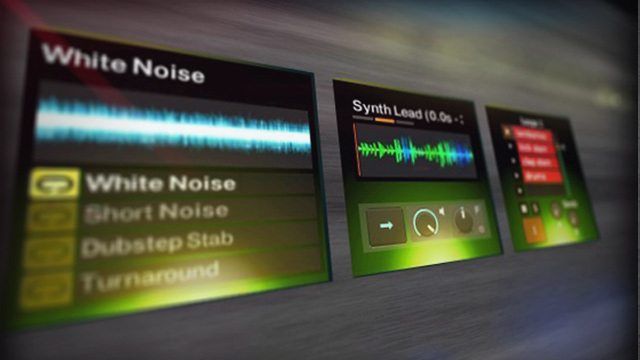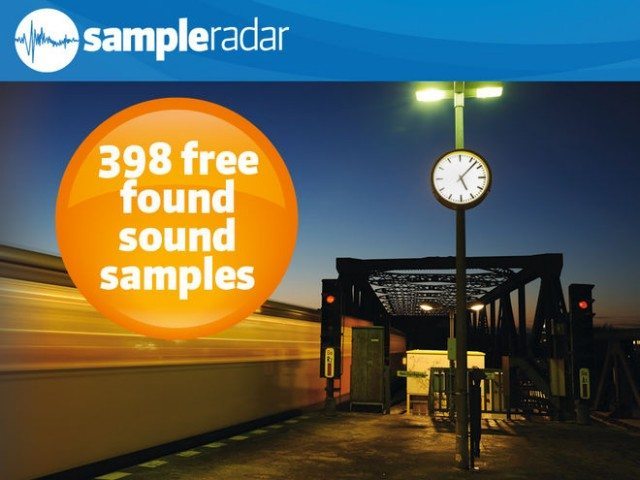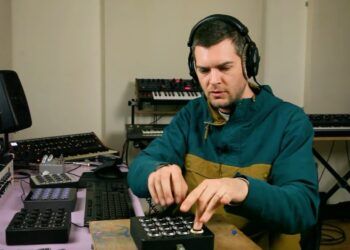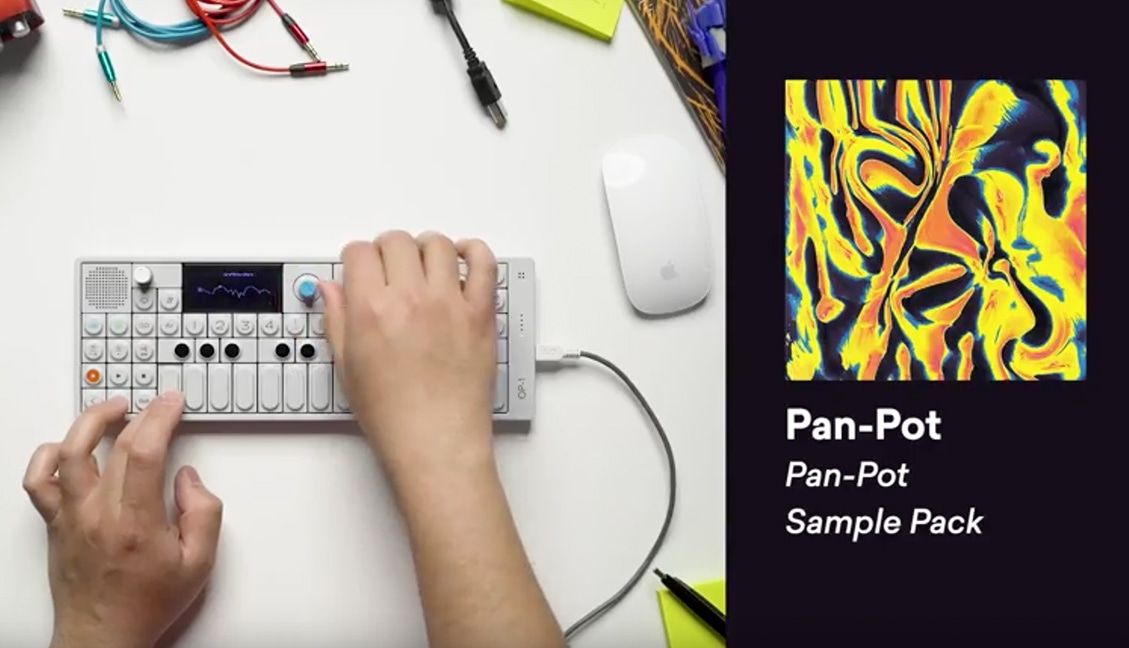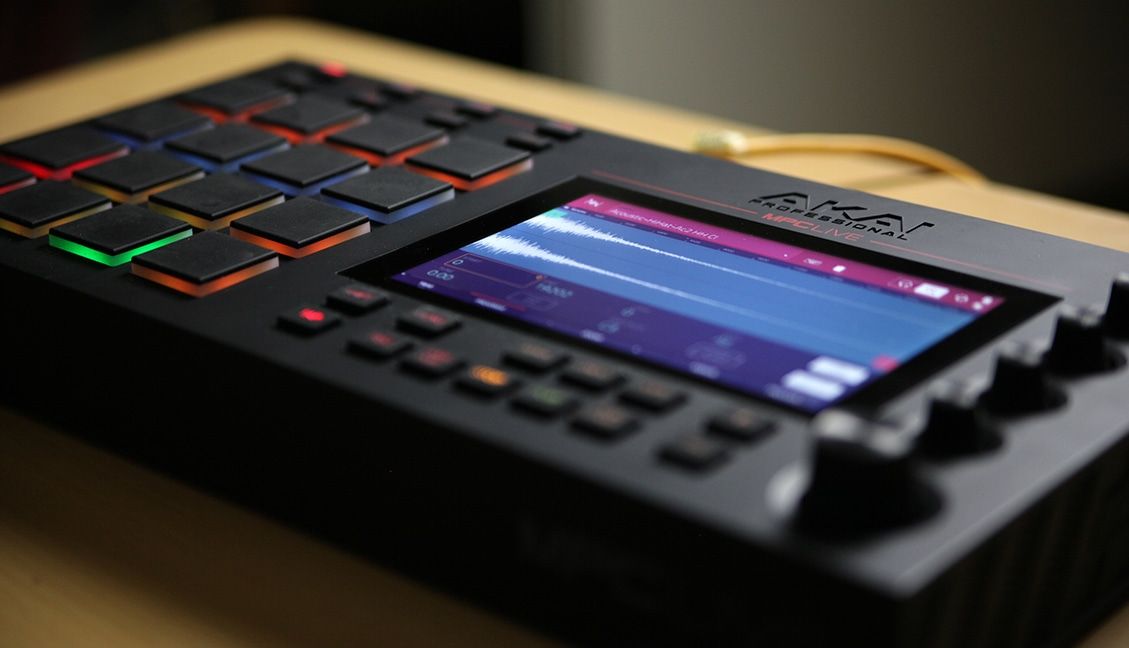In the past few years, we’ve seen DJ software across the board start to add more serious sample and loop workflows into their feature lists. Traktor’s Remix Decks will just be the lastest in a long line of recent advancements, from Serato’s Ableton Bridge to Virtual DJ 8’s upcoming inline sample editor. While filling out a set of full-length tracks might be easy, finding good samples that work well in a set isn’t so simple. Today, we’re focusing on the best ways to fill out your sample slots!
Buying Sample Packs
Purchasing pre-packed sample solutions containing tight loops and one-shot samples can be quite a good idea. Most sample packs include only royalty-free audio, meaning you are free in using these samples even for commercial purposes without any limitations. Sound quality is normally excellent and the samples you get are perfectly designed for the genre you are interested in.
Buying prepacked loops is also the fastest way to get ready to rock out. There are several great online stores out there already that have specialized in selling samples which can be used immediately. Some of these stores even sell parts from complete songs. Here’s a quick hitlist of some of the best resources:
We’d be remiss if we didn’t mention our own DJ Powertools, performance driven mixing tools developed in house here at DJTT. Soon we’ll have them in Remix deck format as well – you can try out a selection of them for free here!
Even though all of these sample packs are worth it, it’s also really easy to spend a fair amount of money on them. Sometimes the best things in life are free – and we’re pretty sure that buying loads of sample packs is one of the fastest ways to get rid of your money as a DJ!
FINDING FREE LOOP CONTENT
Having spent serious amounts of money on sample packs might lead to considering alternatives for lowering costs. What about free stuff? There is nothing wrong with just looking around with the aim of finding some nice free loops. Tons of them are spread around the internet and sometimes you find crazy samples you would maybe have never imagined.
It is often hard to find exactly what you’re looking for. In some cases, sound quality is quite bad and the samples you get simply do not meet your musical expectations in terms of diversity and uniqueness. Another problem – the actual sources of free samples often tend to be vague. You should always keep in mind that using free samples (especially in commercial song projects) could lead to legal issues. To avoid this, try to make sure you can verify the samples you download are royalty-free.
Let’s have a closer look at some great sources of free samples!
The first one to mention is Musicradar.com. The mass of great samples they give away is unbeatable. All of their loops and one-shots are supplied in 24-bit quality and as WAV files so they can be used with basically every modern audio software available. What is really great is the way they have packed their samples into different packs of a particular genre. If you are only interested in minimal house loops you won’t need to sort out all of the unsuitable stuff but simply download their minimal loop package containing 350 files categorized into 18 tempo-labeled kits. All of these samples are, of course, royalty-free and, to top it all off, you won’t even have to register or give them a like on Facebook.
 The second website to highlight is Looperman.com. Looperman content has been made by actual users of the site, and they have quite a large community. One of the reasons we recommend it so highly is that there is some great metadata on the loops and acapellas themselves, often including tempo, genre, and key information. This means that finding the right loops for the project or set that you’re working on is that much easier! Loooperman currently has 32,000+ loops and samples and nearly 2,000 acapellas are available for free – all they ask for is a user registration. For DJing purposes their completely royalty-free stuff is simply fantastic.
The second website to highlight is Looperman.com. Looperman content has been made by actual users of the site, and they have quite a large community. One of the reasons we recommend it so highly is that there is some great metadata on the loops and acapellas themselves, often including tempo, genre, and key information. This means that finding the right loops for the project or set that you’re working on is that much easier! Loooperman currently has 32,000+ loops and samples and nearly 2,000 acapellas are available for free – all they ask for is a user registration. For DJing purposes their completely royalty-free stuff is simply fantastic.
Producing Your Own Samples and Making Your Own Kits
Think you’re ready to start capturing your own samples and making your own loops? We covered the topic extensively earlier this year, in “Digging’s Not Dead: Expand Your Unique Library With Sampling” – if you’re just getting started producing and collecting samples, this is a great additional primer!
A few considerations in regards to how loop kits are commonly structured and what you should consider for constructing your own performance kits:
- Consider the maximum number of sample slots your DJing software and hardware will provide.
- Have single kick and clap one-shots, allowing you to tap in your own layered beats.
- You need powerful melody loops (e.g. synth, piano or guitar) but also don’t forget to include some nice basslines and pads (everything in the same key, of course) to give your music a bit more low-end frequencies and depth.
- Add in a few uplifter FX sounds and falling FX sounds to increase the track’s variation and tension.
- Think about how to get out of your track! Especially if it won’t be part of a longer mix, having a closing sample up your sleeve makes for a solid conclusion to a routine.
Sample Your Favorite Records
By sampling beats or melodies from your favorite records you definitely make sure that what you get is what you want! It is one of the cheapest ways to feed your sample library. Having sampled a bunch of great basslines, melodies and drum beats from several songs allows you to play them out in a live mashup or remix and thereby create epic tunes. But as the content you sample probably won’t be your own, you will commonly not be allowed to use it commercially in your own tunes. If you’re in doubt about copyright issues just check out our article here on DJTT!
Record Your Own Samples
If you’ve seen the above Dub FX performance on the S4, you know just how powerful it is to use a microphone and a loop recorder for sweetening the track with your own vocals, glitch sounds or beat boxing. Just plug your microphone into your controller or sound card and figure it out! And don’t hesitate if you don’t reckon yourself to be the world’s next Michael Jackson: Put some effects on your recording and you might be astonished about the results! In Traktor, try out the Delay T3 for polishing your sound, the “Transpose Stretch” for achieving an Arnold Schwarzenegger-like or Chipmunk-style voice or the “Digital Lofi” to sound like a robot.
Check out an article from earlier this year on more creative ways to expand your sample library with found sounds!
C.B.’s DJTT Samples and Loops!
For inspiration, I’ve put together two exclusive sample sets to get ready to start stepping into the sample world! Both kits each contain 16 loops and one-shots coming as single WAV-files so you can easily adapt the number of samples to your number of sample slots being available. Both kits are in the same tempo and key, so every element is interchangeable!
C.B.’s DJTT Prog House Sample/Loop Kit
C.B.’s DJTT Mainroom Dance Sample/Loop Kit
Weekly Sample Packs By Mad Zach
We’re also happy to officially announce DJTT’s new weekly sample offering – a kit of 16 dynamic samples every week in our weekly email. Our Ableton guru Mad Zach has been putting them together for the past few weeks, and we’re excited to share the details with you here:
- 16 samples (drums, synths, one shots)
- Created from analog sound sources – not simple VST samples!
- Come in Ableton drumrack form with cool interactions (sidechaining and dynamic) as well as in WAV format
- Totally free!
Sign up for our weekly email today and start receiving a great sample kit each week!
We’ll be sending out this week’s email on Thursday, so sign up before then to stay in the loop (pun intended).
So now your Sample Decks are starting to get a little more filled – but what about you? What are your tips for expanding your sample library? Let us know in the comments!



